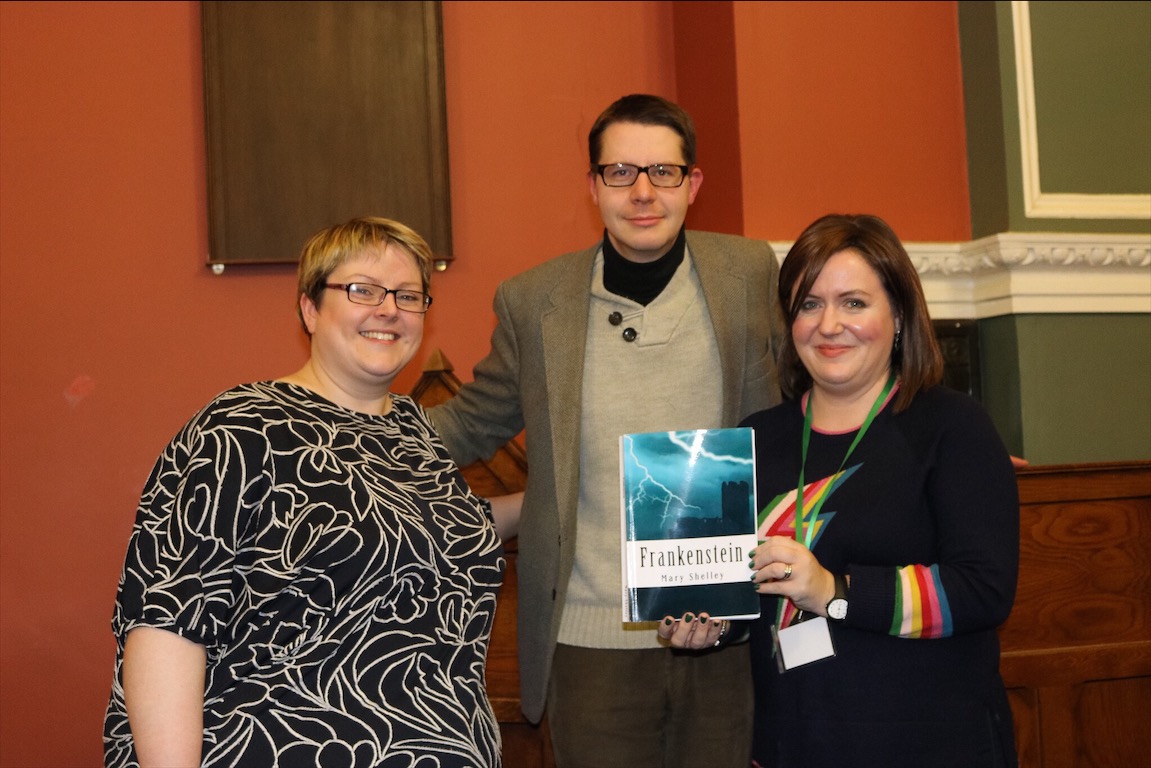
A matter that ought to be seriously debated is how long one can reasonably be expected to sit silently in the GMB. These are the thoughts that occur to one, six hours into a Frankenstein reading marathon. These petty tribulations become major just as the light emanating from the windows begins to fade and a noticeable draught develops, or when the creeping need to visit the bathroom comes uncomfortably close to a major plot point.
This is how many students chose to spend their Halloween day, ostensibly of their own free will. Notices advertising a marathon reading of the entirety of Mary Shelley’s Frankenstein began to appear around campus last week. The readings would begin at 10.30am and conclude at 6.30pm: a mere eight hours spent in silent appreciation of the seminal novel of Gothic romanticism. I could scarcely believe my eyes. Only eight hours? Nonetheless, on Wednesday morning, I found myself walking up the steps to the GMB, taking hold of the oversized doorknob and proceeding into the debating chamber. And this I suppose was the true horror of October 31st this year.
The first 20 entrants were promised complimentary copies of Frankenstein. I sadly could not count myself among them. I observed them with growing envy and resentment throughout the day as they traced the spoken words along the page. The torment of listening to them turning their pages with apparent perfect synchronicity was almost unbearable. Luckily, the complimentary coffee and biscuits were not strictly designated for the elite few who had managed to arrive on time. Rumours abounded that some Shelley devotees had slept on the steps of the GMB, or in the tennis courts of Botany Bay, but I paid them no mind.
The readers managed to nullify some of the cruelty that is inflicted by the prosaic turgidity of the early chapters, and emphasize the more fantastic episodes that occur when Shelley is tracing Victor Frankenstein’s deranged 19th century interrailing expedition. Indeed, some of the more evocative readings of the protagonist’s fatigue and unrest were disturbingly sympathetic for those who had endured the previous four hours. I found myself swooning in and out of consciousness in tandem with Frankenstein’s own mental and physical exhaustions. In the end, the restless and disturbing search for the monster took on an allegorical resonance as the marathon began to crawl towards its finishing line.
It is hard to say that this is the way Mary Shelley intended her readers to absorb her work. The novel of Frankenstein allegedly developed out of a ghost-story competition held between herself, her husband Percy Shelley and Lord Byron in Geneva of 1816. However, I find it difficult to believe that these storytelling sessions would span eight hours apiece. Hearing the different registers that each reader brought to her prose undoubtedly provoked unfamiliar and engaging meanings of the work, and seeing the diversity of the attendees and readers was encouraging, but perhaps it is better to read such classic works of literature in a more conventional way. The GMB, regardless, bears witness to more obscene horrors every Wednesday and Thursday night.






